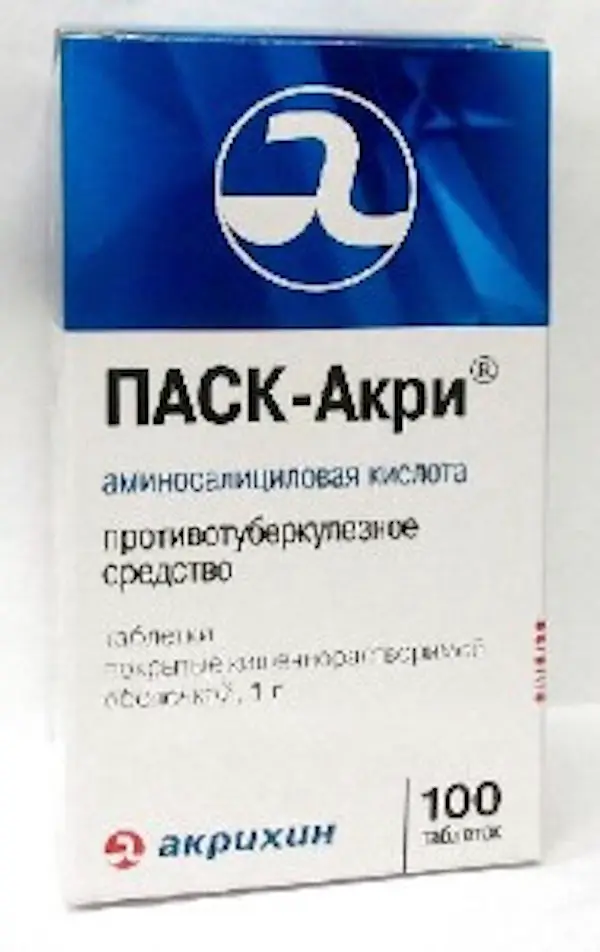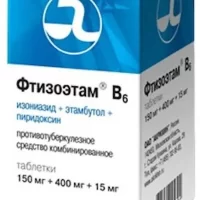Description
PASK-Acri Pharmacodynamics
It has a bacteriostatic effect on Mycobacterium tuberculosis. Aminosalicylic acid competes with para-aminobenzoic acid and inhibits folate synthesis in Mycobacterium tuberculosis. The drug is active against multiplying mycobacteria; it has practically no effect on bacteria that are in the dormant stage or located intracellularly. It reduces the probability of mycobacteria resistance to streptomycin and isoniazid.
Indications
Tuberculosis (various forms and localizations) in treatment.
Contraindications
Hypersensitivity to aminosalicylic acid (incl. Hypersensitivity to aminocylic acid (including other salicylates) and other drug components, individual intolerance to salicylates (in anamnesis); severe renal and/or hepatic failure, heart failure in decompensation stage, peptic ulcer and duodenal ulcer; inflammatory bowel disease in acute stage; decompensated hypothyroidism; epilepsy; thrombophlebitis, hypocoagulation; breast-feeding period, glucose-6-phosphate dehydrogenase deficiency; arterial hypertension; edema due to hypernatriemia; amyloidosis of internal organs; children under 3 years (for this dosage form).
Caution Renal and/or hepatic insufficiency of mild to moderate severity, chronic heart failure, gastrointestinal diseases in anamnesis, diabetes, acute hepatitis, compensated hypothyroidism.
Dosage and administration method
- Inside, 0.5-1 hours after a meal with boiled water.
- Adults – 9 to 12 g / day (3 to 4 g 3 times a day), for emaciated patients with body weight less than 50 kg – 6 g / day.
- Children aged 3 to 18 years old are prescribed at a rate of 0.15-0.2 g/kg of body weight per day in 3-4 doses (daily dose not exceeding 10 g).
- In case of outpatient treatment, the entire daily dose may be administered in one dose.


